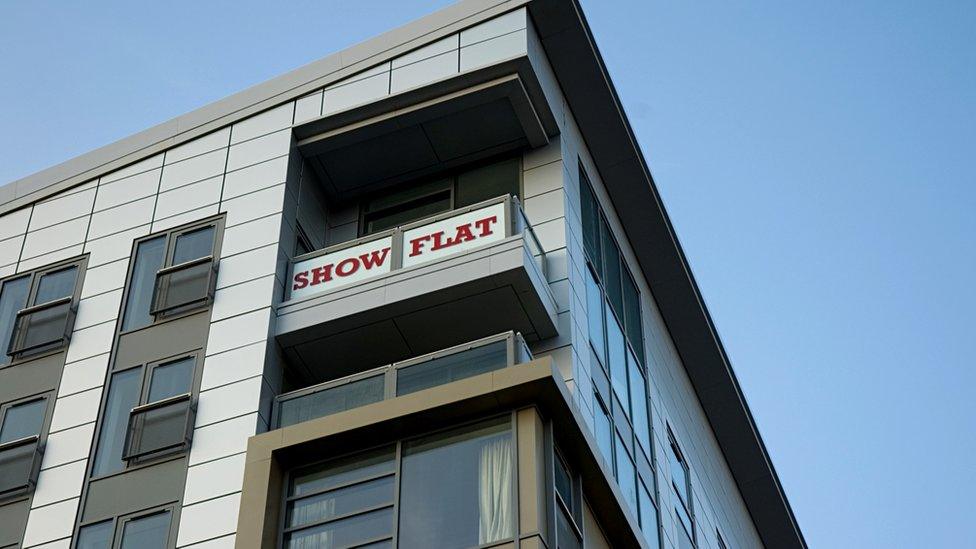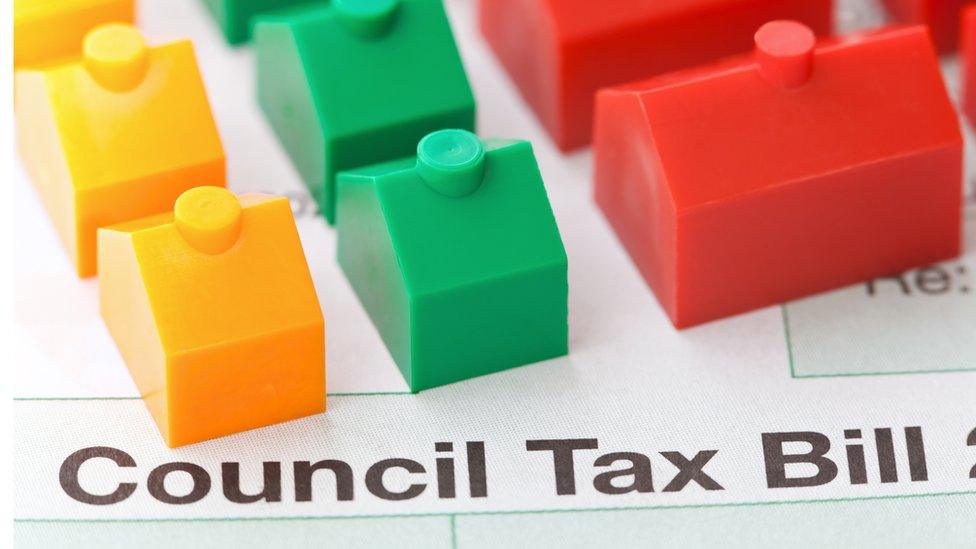Resolution Foundation says council tax unfairly burdens the poor
- Published

Council tax needs to be radically reformed as it unfairly burdens poorer households, according to a new report into housing in Scotland.
The Resolution Foundation suggests the tax is as regressive as the poll tax it replaced 25 years ago.
They have highlighted wide and rising inequalities in housing wealth across Scotland.
Their report challenges the priority given to reducing income inequality by highlighting the much bigger gap in housing assets.
The foundation's report also highlights how much home owners have gained from prices rising faster than inflation.
This was particularly true in the years running up to the financial crash in 2008.
Aided also by the right to buy council homes over the past 50 years, property wealth has risen nearly ten-fold, in real terms - from £34bn to more than £300bn.
The report says that a tenth of households own more than one home - either as a second home or for rental.
Yet more than a third of Scots households have no property wealth at all.

The gap is also widening between generations, as younger people are unable to get onto the property ladder.
Even though housing prices have not accelerated as fast in the past decade, the generation gap was found to be increasing housing wealth inequality.
The gaps are clear between different parts of the country. Unsurprisingly, those with property in cities have more wealth tied up in it than places where property is cheaper. Edinburgh's average property is worth 2.5 times that of East Ayrshire.
Top earners
The gaps within council areas are widest within larger cities, where social and private rental of homes is higher, and ownership is concentrated in a smaller share of the population.
And the gap between homeowners at different levels of income is also widening.
Those in the top tenth of earners held 2.5 times as much housing wealth as those in with median income at the start of this decade. But in less than five years, that had risen to 3.4 times as much.

Edinburgh's average property is worth 2.5 times that of East Ayrshire
The think tank argues that housing wealth should be seen as having value beyond the purely financial reckoning, in that it provides a level of security that non-home owners lack.
Measures to help people enter the housing market, including Help to Buy, are challenged as being an inefficient way of using resources to make the housing market fairer.
The report suggests alternative approaches could focus more on helping younger and lower-income families through reform of the tax system.
Successive governments
These could include a further transaction tax surcharge on those buying an additional property, or higher rates of tax on multiple properties.
As the main levy on property, council tax takes a much higher share of income from poorer households than it does from higher earners in more valuable homes.
It is based on estimated rental valuations of 28 years ago, even for homes that were not built then. Successive governments have been unwilling to face the likely backlash from revaluation, as bills would likely go up sharply for some.
The Resolution Foundation concludes there is a strong case for reform to council tax.

Its report looks at four options for change, all of which would result in narrowing the inequality gap.
These could raise up to £1.5bn more than council tax does at present, which could then be used to help support housing need for those with lower incomes.
These options range from revaluation while retaining the current system, to levying an annual property tax as a flat rate percentage of its value.
Local income tax
It concedes that reform would be difficult, and measures would be required to soften the blow for those with valuable properties but low income levels, which is the case with some pensioners.
The last Labour-Liberal Democrat administration could not agree on reform measures for council tax, and backed away from a flat rate percentage tax recommended by an independent review.
The SNP came to power in 2007 promising to replace what it called "the hated council tax" with a local income tax, but that plan was shelved.
Ministers have more recently adjusted council tax to load more onto properties in the higher-rated bands.
Following the deal struck with Scottish Green MSPs on the current year's Holyrood budget, there is a promise to consult on possible changes.
The Resolution Foundation report, titled Taking Stock, was commissioned by the Scottish Poverty and Inequality Commission.
